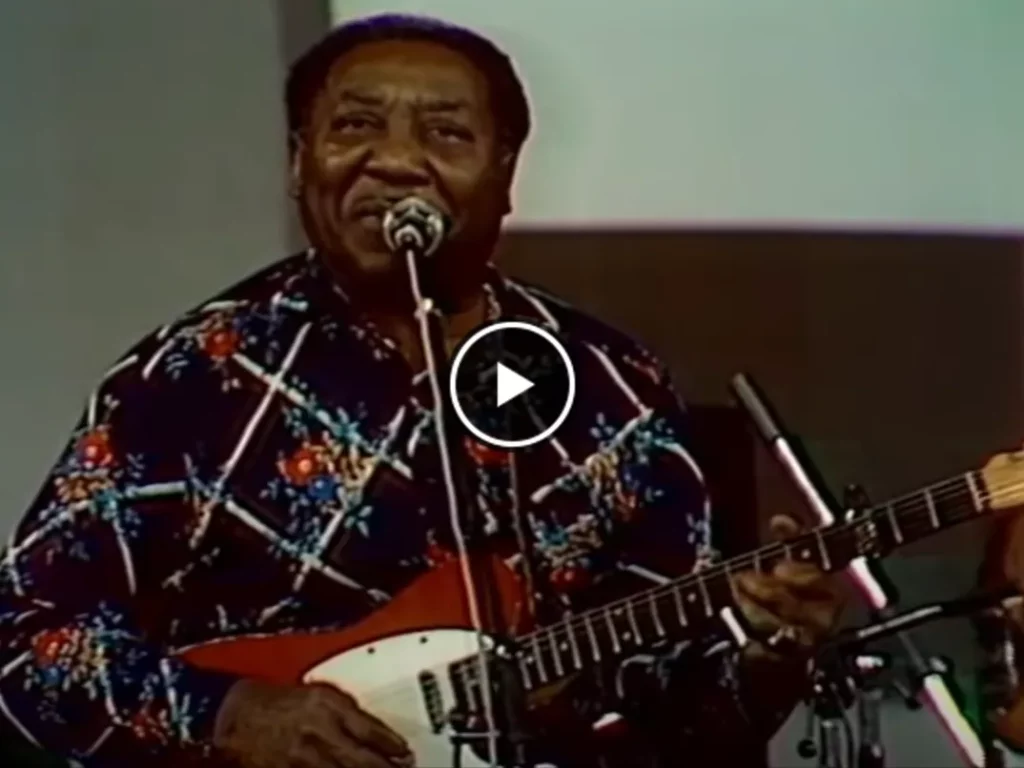
Engage your senses: Press play on the video, then stimulate your brain with the article.
The song “The Howling Wolf” was written and performed by Sam “Lightin’” Hopkins. Hopkins and Muddy Waters were both known for their influential styles.
Muddy Waters
Muddy Waters, born McKinley Morganfield on April 4, 1913, in Issaquena County, Mississippi, is an iconic figure in the world of blues music. Often hailed as the “father of modern Chicago blues,” his influence extends far beyond the genre, impacting rock and roll, jazz, and popular music worldwide.
McKinley Morganfield, better known as Muddy Waters, was one of the most influential artists of all time. His innovation in jazz and rhythm and blues music continues to leave its mark today. In this performance, he is covering a song called “The Howling Wolf”.
This song was originally written and performed by Sam “Lightin’” Hopkins. Hopkins and Waters were both known for their influential styles. This cover opens with Muddy Waters playing a jazzy, downbeat. His gravelly, voice perfectly captures the emotional lyrics of the song. A classic harmonica accompanies the guitar and vocals from the beginning of the song. The band continues to riff on the song until 3:54 where the music breaks for a guitar and then a harmonica solo. Be sure to watch until 6:44 when Muddy Waters acts out his inside howling wolf.
From Mississippi Delta to Chicago
Growing up in the Mississippi Delta, Waters was immersed in the rich musical traditions of the region. He began his musical journey at a young age, initially playing the harmonica before taking up the guitar. Influenced by local blues legends like Son House and Robert Johnson, he developed a unique style characterized by his powerful voice and emotive slide guitar technique.
In 1943, Waters moved to Chicago, seeking better economic opportunities. This move marked a significant turning point in his career. He transitioned from the acoustic Delta blues style to a more electrified version, which became a hallmark of the Chicago blues sound. His recordings for the Chess Records label, including classics like “Hoochie Coochie Man,” “Mannish Boy,” and “I Just Want to Make Love to You,” are considered blues milestones.
Lesser-known facts about Muddy Waters add depth to his legendary status:
1. Nicknamed for his Love of Mud: As a child, Waters was fond of playing in the muddy waters of a nearby creek, earning him the nickname “Muddy.” The addition of “Waters” came later as he began his musical career.
2. Cabin Birthplace: Waters was born in a cabin on Stovall Plantation, a fact often overshadowed by his Chicago fame. This cabin has become a symbolic site, representing the roots of the blues tradition.
3. Influence on The Rolling Stones: The band The Rolling Stones named themselves after Waters’ 1950 song “Rollin’ Stone.” This highlights his significant influence on rock and roll.
4. Carpentry Skills: Before achieving fame, Waters worked in a factory and was skilled in carpentry. He often built his own furniture, a testament to his practical skills and humble beginnings.
5. Grammy Awards Recognition: Waters won several Grammy Awards in the 1970s, recognizing his contributions to music, a significant achievement for a blues musician of his era.
6. A Mentor to Many: Waters was known for mentoring younger musicians, including notable artists like Buddy Guy and Otis Spann, who would go on to become blues legends themselves.
7. International Tours: He was one of the first blues musicians to tour abroad, taking the blues to audiences in Europe and beyond, and helping to globalize the genre.
Muddy Waters passed away on April 30, 1983, but his legacy endures. He is remembered not just for his musical achievements but also for his role in shaping the sound and spirit of the blues, influencing countless musicians across multiple genres. His story is a testament to the enduring power of the blues and its ability to speak to the human condition.
We appreciate your time and dedication to reading our article. For more of the finest blues guitar music, make sure to follow our Facebook page, “I Love Blues Guitar”. We share exceptional selections every day. Thank you once again for your continued support and readership.


Facebook Comments